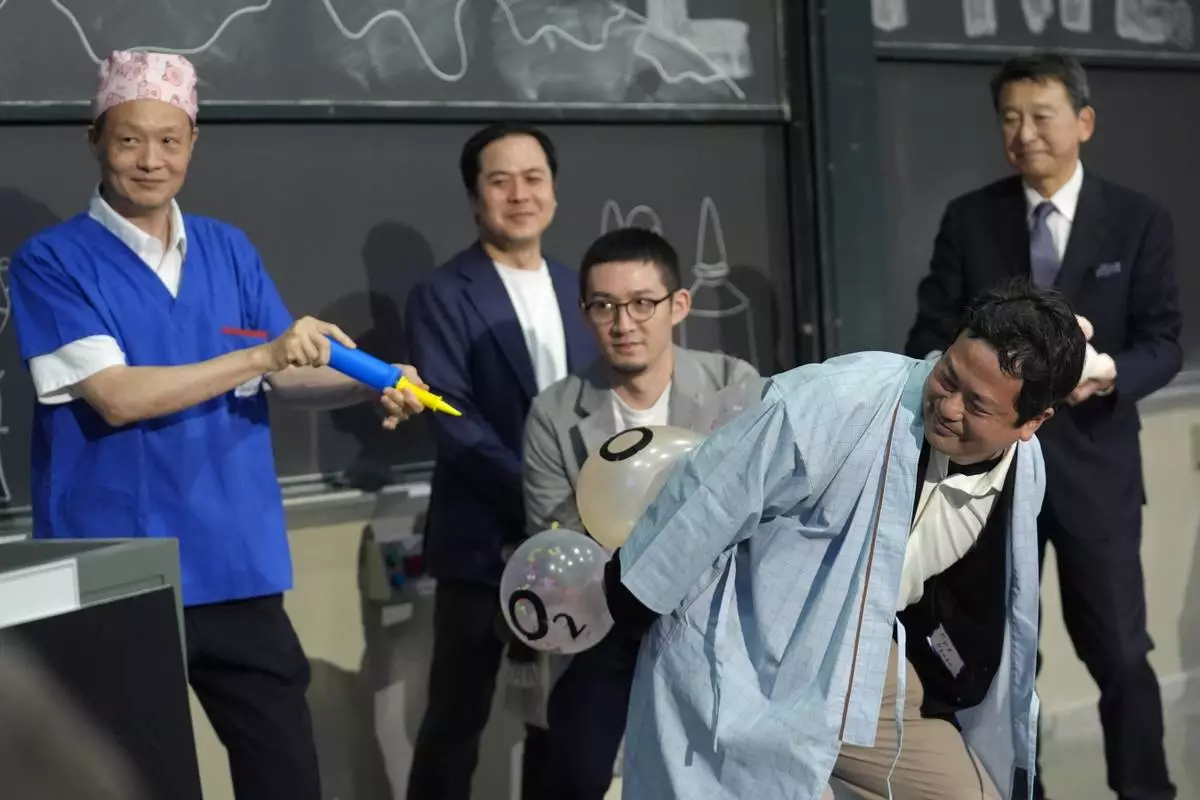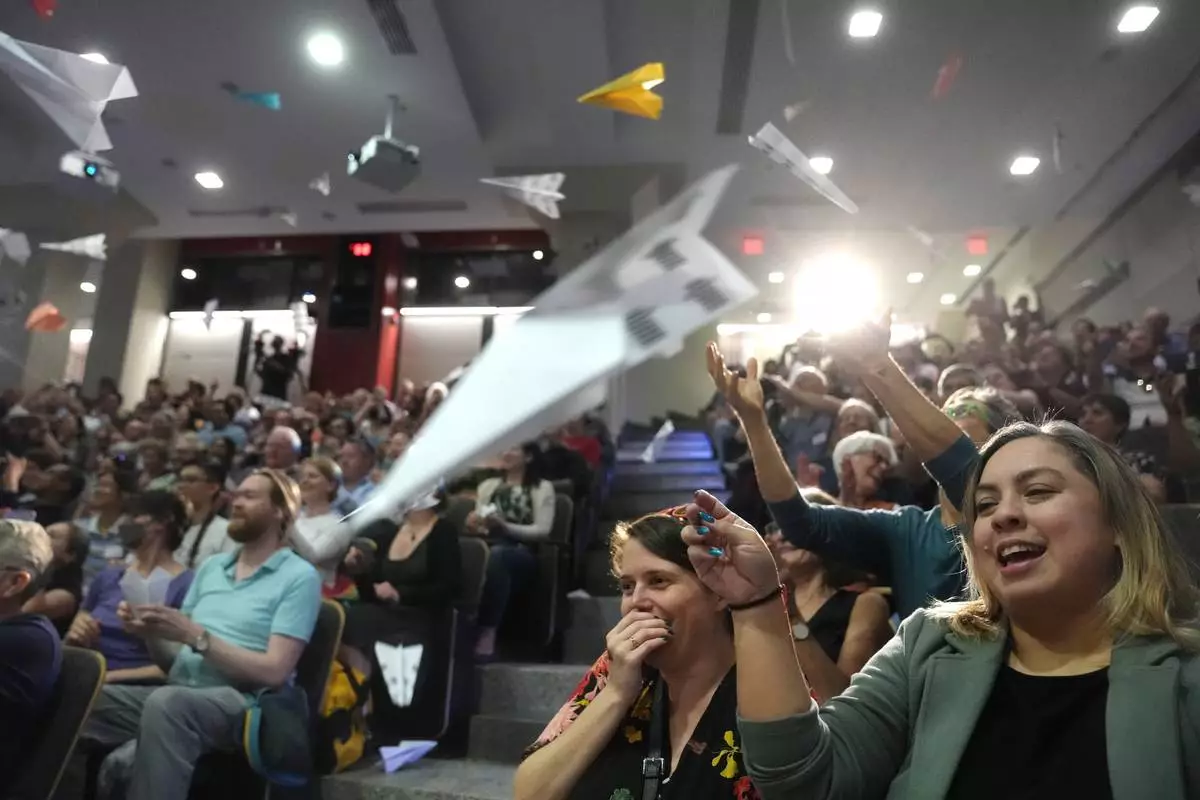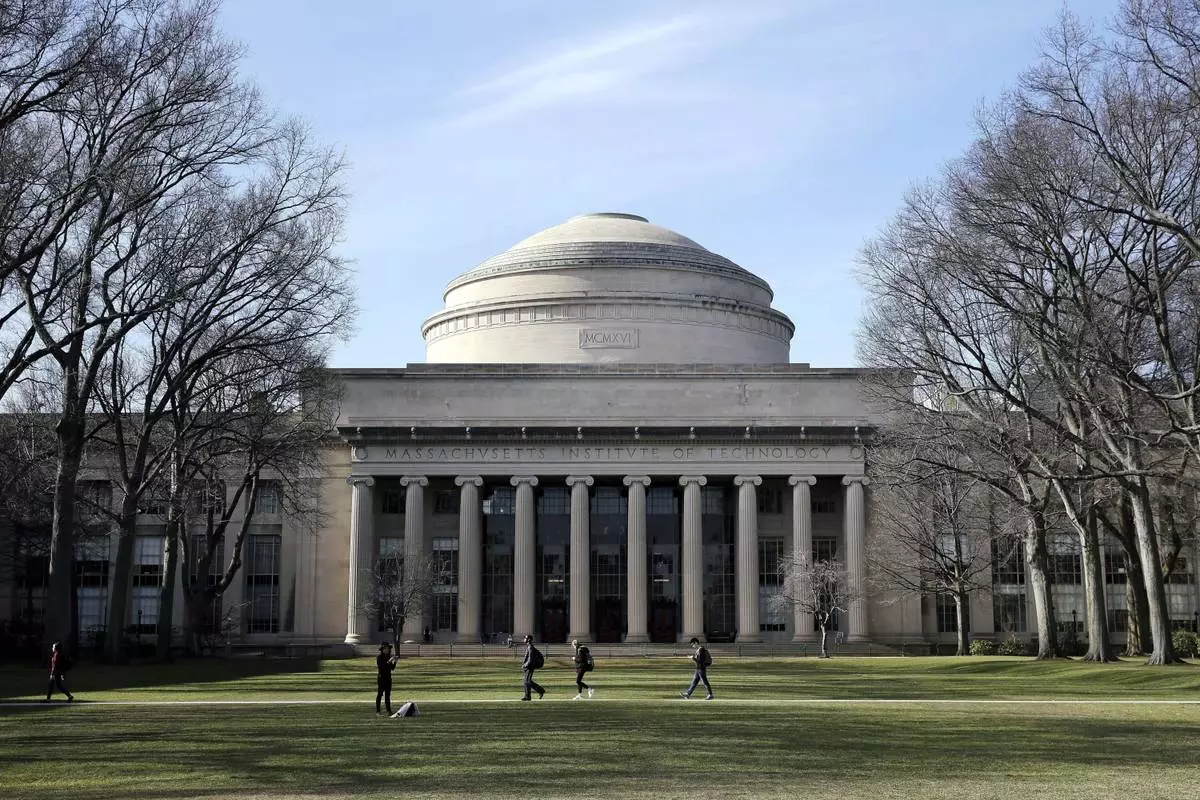ISLAMABAD (AP) — Pakistan brought home Friday the bodies of 28 Shiite pilgrims killed in a bus crash in Iran this week while heading to Iraq for a pilgrimage. A Pakistani military aircraft also flew back 23 pilgrims injured in the accident, officials said.
Earlier in the day in Iran, officials handed over the bodies of the crash victims to Pakistani diplomats. Prayer services were held in both Iran and later in Pakistan.
Funeral were to take place in the victims' home districts early Saturday. The pilgrims were from Pakistan’s southern Sindh province, according to Nasir Shah, a provincial government spokesman.
The plane, requested by Pakistani Prime Minister Shehbaz Sharif for the repatriation, landed at the airport in Jacobabad, about 1,000 kilometers (625 miles) southwest from the capital of Islamabad. The coffins, covered in Pakistan’s national flag, were handed over to the victims' relatives for burial.
State-run PTV broadcast the ceremony at the Jacobabad airport, where relatives of the victims cried and hugged each other.
Authorities have not revealed the cause of the crash near the city of Taft, some 500 kilometers (310 miles) southeast of the Iranian capital, Tehran.
In a state TV report, Mohammad Ali Malekzadeh, a local Iranian emergency official, blamed the crash on the bus brakes failing and a lack of attention by the driver. A surveillance video later aired by the state TV showed the bus speeding past a parked car into a dirt lot just before the crash, narrowly missing bystanders.
Iran has one of the world’s worst traffic safety records with some 17,000 deaths annually. The grave toll is blamed on wide disregard for traffic laws, unsafe vehicles and inadequate emergency services in its vast rural areas.
The pilgrims had been on their way to Iraq's holy city of Karbala, to commemorate Arbaeen — Arabic for the number 40 — marking the end of the annual 40-day mourning period after the date of the seventh century death of the Prophet Muhammad’s grandson, Hussein, a central figure in Shiite Islam.
Hussein died at the hands of the Muslim Umayyad forces in the Battle of Karbala, during the tumultuous 1st century of Islam’s history.
Associated Press writer Asim Tanveer in Multan, Pakistan, contributed to this story.

Pakistan sends aircraft to Tehran to repatriate bodies of its 28 Shiite pilgrims killed in bus crash

This image taken from a video released by Iranian state television shows the aftermath of a bus crash near Taft, Iran, early Wednesday, Aug. 21, 2024. A bus carrying Shiite pilgrims from Pakistan to Iraq crashed in central Iran, killing multiple people, an official said Wednesday. (Iranian state television via AP)

Pakistan sends aircraft to Tehran to repatriate bodies of its 28 Shiite pilgrims killed in bus crash
BOSTON (AP) — A study that explores the feasibility of using pigeons to guide missiles and one that looks at the swimming abilities of dead fish were among the winners Thursday of this year’s Ig Nobels, the prize for comical scientific achievement.
Held less than a month before the actual Nobel Prizes are announced, the 34th annual Ig Nobel prize ceremony at the Massachusetts Institute of Technology was organized by the Annals of Improbable Research magazine’s website to make people laugh and think. Winners received a transparent box containing historic items related to Murphy’s Law — the theme of the night — and a nearly worthless Zimbabwean $10 trillion bill. Actual Nobel laureates handed the winners their prizes.
“While some politicians were trying to make sensible things sound crazy, scientists discovered some crazy-sounding things that make a lot of sense,” Marc Abrahams, master of ceremonies and editor of the magazine, said in an e-mail interview.
The ceremony started with Kees Moliker, winner of 2003 Ig Noble for biology, giving out safety instructions. His prize was for a study that documented the existence of homosexual necrophilia in mallard ducks.
“This is the duck,” he said, holding up a duck. “This is the dead one.”
After that, someone came on stage wearing a yellow target on their chest and a plastic face mask. Soon, they were inundated with people in the audience throwing paper airplanes at them.
Then, the awards began — several dry presentations which were interrupted by a girl coming on stage and repeatedly yelling “Please stop. I'm bored.” The awards ceremony was also was broken up by an international song competition inspired by Murphy's Law, including one about coleslaw and another about the legal system.
The winners were honored in 10 categories, including for peace and anatomy. Among them were scientists who showed a vine from Chile imitates the shapes of artificial plants nearby and another study that examined whether the hair on people's heads in the Northern Hemisphere swirled in the same direction as someone's hair in the Southern Hemisphere.
Other winners include a group of scientists who showed that fake medicine that causes side effects can be more effective than fake medicine that doesn't cause side effects and one showing that some mammals are cable of breathing through their anus — winners who came on stage wearing a fish-inspired hats.
Julie Skinner Vargas accepted the peace prize on behalf of her late father B.F. Skinner, who wrote the pigeon-missile study. Skinner Vargas is also the head of the B.F. Skinner Foundation.
“I want to thank you for finally acknowledging his most important contribution,” she said. “Thank you for putting the record straight.”
James Liao, a biology professor at the University of Florida, accepted the physics prize for his study demonstrating and explaining the swimming abilities of a dead trout.
“I discovered that a live fish moved more than a dead fish but not by much,” Liao said, holding up a fake fish. “A dead trout towed behind a stick also flaps its tail to the beat of the current like a live fish surfing on swirling eddies, recapturing the energy in its environment. A dead fish does live fish things.”

Professor James Liao displays a stuffed fish while accepting a prize for physics for demonstrating and explaining the swimming abilities of a dead trout during a performance at the Ig Nobel Prize ceremony at Massachusetts Institute of Technology in Cambridge, Mass., Thursday, Sept. 12, 2024. (AP Photo/Steven Senne)

A team of researchers perform a demonstration during a performance showing that many mammals are capable of breathing through their anus while accepting the 2024 Ig Nobel prize in physiology at the Ig Nobel Prize ceremony at Massachusetts Institute of Technology, in Cambridge, Mass., Thursday, Sept. 12, 2024. (AP Photo/Steven Senne)

People in the audience throw paper airplanes toward the stage during a performance at the Ig Nobel Prize ceremony at Massachusetts Institute of Technology in Cambridge, Mass., Thursday, Sept. 12, 2024. (AP Photo/Steven Senne)

FILE - Students walk past the "Great Dome" atop Building 10 on the Massachusetts Institute of Technology campus in Cambridge, Mass, April 3, 2017. (AP Photo/Charles Krupa, File)
















